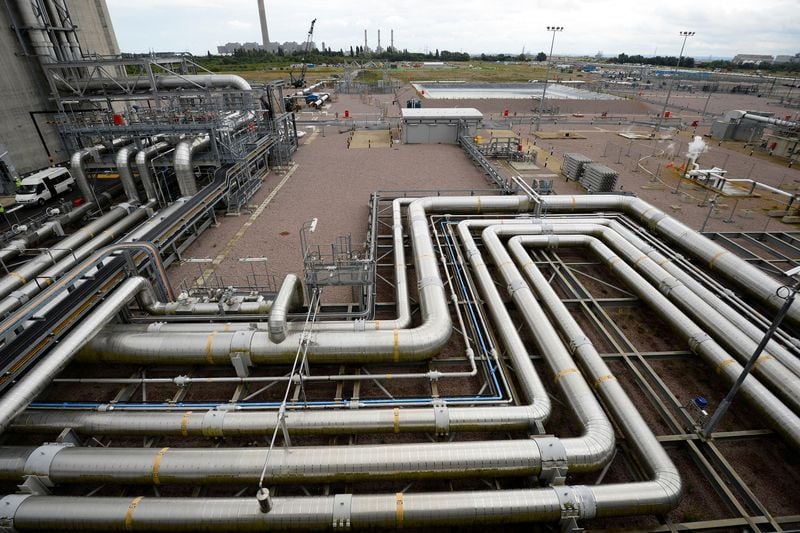
The United States and the European Union will announce an agreement on Friday to send liquefied natural gas (LNG) from Washington to European countries, as European Commission President Ursula Von der Leyen said Thursday.
“Tomorrow, with President Biden, we will present a new chapter in our energy partnership. This is additional liquefied natural gas from the US to the EU, replacing the Russian natural gas we have for now,” said Von der Leyen on his arrival at the summit that European leaders are holding this Thursday in Brussels and to which Biden is invited. “It's an important step forward,” he said.
According to three people familiar with the matter, consulted by the British newspaper Financial Times, the United States is finalizing its plan to supply the EU with up to an additional 15 billion cubic meters of liquefied natural gas by the end of 2022.
The agreement aims to help the EU reduce its dependence on natural gas from Russia, as the bloc is rushing to reduce Russian imports by two-thirds this year. US LNG supplies would contribute to the target, set by the EU this month, of replacing 50 billion cm of gas currently provided by Russia with alternative supplies. In 2021, the United States supplied Europe with 22 billion centimeters, according to EU data.

Von der Leyen arrived on Thursday at the European Council headquarters after participating in the G7 summit, where the most industrialized countries in the world have decided to restrict Russia's gold sales and reduce their energy dependence on Moscow.
The president of the Community Executive also said that energy would be “an important issue at the European summit” and said that “the main objective” is the joint purchase of gas in order to gain influence with “the power of the European market”, as well as the joint storage of this energy source.
European leaders are studying different ways to reduce energy prices. Precisely on Wednesday, the European Commission presented five options to achieve this goal, ranging from capping gas prices in the wholesale market, offsetting the production costs of companies that generate electricity with fossil fuels, redirecting “fallen profits from the sky” to consumers or creating an aggregator that guarantees a low price for vulnerable consumers.
Brussels also presented a legislative proposal to force Member States to have their gas stores at least 80% full by next winter and a mechanism to be able to withdraw control of deposits from third country companies, such as Russia's Gazprom, if their behaviour threatens security of supply.
The document on energy presented by the Commission is the third in the last five months, in which the Executive, under pressure from countries such as Spain, Greece, Romania, France, Italy or Belgium, has gradually opened up to market intervention, something unthinkable in Brussels half a year ago and which is still not liked by Germany or Countries Basses.
With information from EFE
Keep reading:
Últimas Noticias
Debanhi Escobar: they secured the motel where she was found lifeless in a cistern

The oldest person in the world died at the age of 119

Macabre find in CDMX: they left a body bagged and tied in a taxi
The eagles of America will face Manchester City in a duel of legends. Here are the details

Why is it good to bring dogs out to know the world when they are puppies




